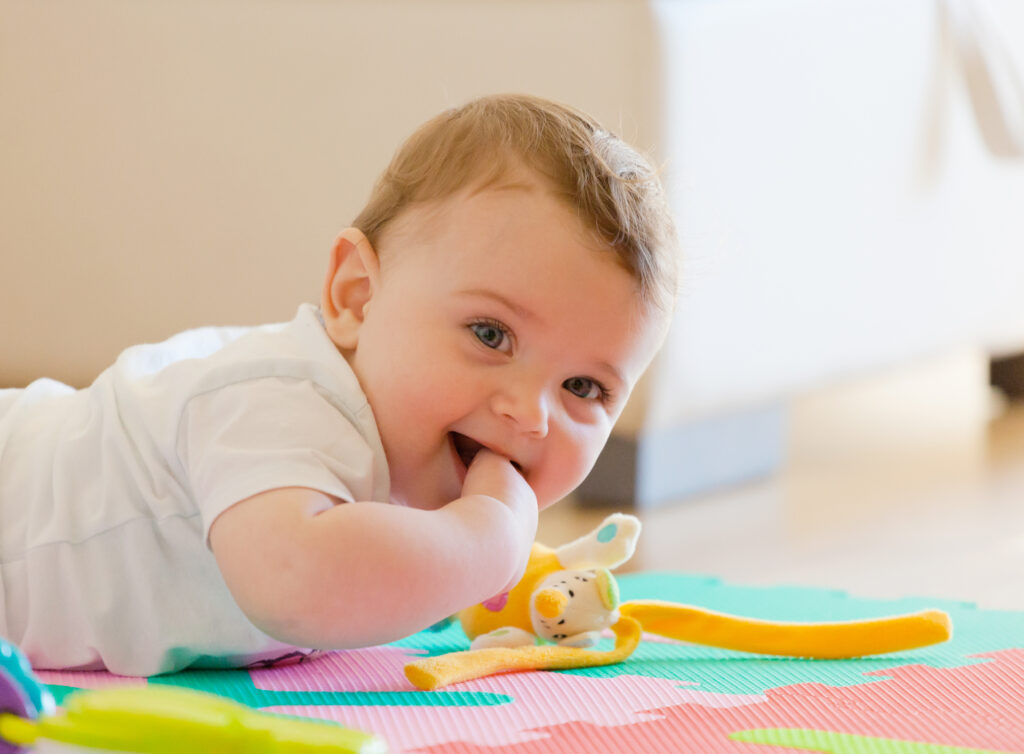Hitting the 6-month mark and realizing your baby still isn’t rolling over can stir up a mix of emotions – worry, confusion, maybe even guilt. You might wonder if you missed something, or if you’re overreacting. The good news: you don’t have to figure this out alone. There’s a clear, step-by-step way to move from concern to action without getting lost in medical jargon or “wait and see” limbo.
When your baby isn’t rolling at 6 months, the goal isn’t to panic – it’s to gather facts, understand what’s typical, and make informed decisions. This roadmap breaks the process into manageable steps so you can keep moving forward with clarity and confidence.
Step 1 – Professional Evaluation
Start with your pediatrician. They’ll look at your baby’s overall development, muscle tone, reflexes, and coordination. If rolling is the only delay, you may just be in the “late bloomer” range. But if there are other concerns—such as trouble holding their head up, sitting with support, or reaching for toys—they may refer you to:
- Pediatric physical therapist – for targeted motor skill support
- Developmental pediatrician – if multiple domains (motor, speech, social) are affected
- Neurologist or geneticist – if the delay appears linked to muscle tone or coordination issues
📌 Tip: Bring videos of your baby’s typical movement during playtime—tiny details help specialists spot patterns.
Step 2 – Screening Tools That Clarify Next Steps
Objective tools can make a big difference in understanding what’s happening.
- Family Health Checker – Creates a structured profile of your baby’s traits and milestones, which you can share with your care team.
- Motor development checklists – The CDC’s 6-month milestones are a good reference.
- Developmental screening tools – Your provider may use standardized questionnaires to track progress over time.
These tools turn your observations into actionable data, which helps guide referrals and therapy plans.
Step 3 – Early Intervention
If your baby qualifies, Early Intervention programs can provide physical therapy, occupational therapy, or both – often at low or no cost. According to the American Academy of Pediatrics (AAP), the earlier therapy starts, the better the outcomes, because brain and muscle pathways are still highly adaptable in the first three years.
📌 Even if you’re still waiting for a diagnosis, you can begin therapy based on developmental needs.
Step 4 – Explore Genetics (If Recommended)
If your pediatrician or developmental specialist suspects multiple delays – or signs of global developmental delay (GDD) – they may suggest following the AAP’s genetic testing pathway.
Genetic testing can:
- Rule out or confirm certain syndromes
- Help target the most effective therapy approach
- Guide long-term care planning
This step isn’t for every child, but when recommended, it can shorten the path to answers. Know more about Could My Baby’s Not Rolling at 6 Months Be Genetic?
Step 5 – Keep Advocating & Stay Informed
Developmental progress isn’t always a straight line. Keep tracking your baby’s milestones, ask questions, and don’t be afraid to revisit earlier steps if progress stalls. Being proactive is not being pushy—it’s parenting.
📌 Your voice matters. Studies show parental concerns often detect delays earlier than routine screenings. For more reasons about a baby not rolling over, check here: What Are the Reasons a Baby Is Not Rolling Over at 6 Months?
Family Health Checker Next-Steps Toolkit
This keeps your pediatrician, therapists, and specialists on the same page, tracking progress and next-step actions in one place. A shared report means no repeated explanations, no lost details – just a clear, ongoing picture of your child’s journey. All outputs are non-diagnostic and must be validated through clinical evaluation and appropriate testing.
If you’re still wondering about the early signs, you may also find our guide helpful: Why Isn’t My 6-Month-Old Rolling Over Yet?



